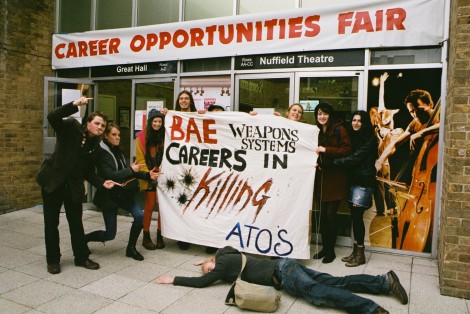After a year long campaign by Lancaster University’s Ethical Investment Group (LUEIG) the University has agreed to consider an Ethical Investment Policy put forward by the group. Currently, around 14% of the University’s investments are in fossil fuels and nearly 4% of investments are in the arms trade.
Over 1000 students have already signed the “Divest Lancaster University from Unethical Investment” petition, which calls on the university to adopt an ethical investment policy, with commitment to divestment from fossil fuels and the arms trade.
CCO (Environment & Ethics) Polly Davis has told Lancaster SCAN:
“It’s hard to know what this decision will be, as there are lots of possible options, from liquidation of all investments to a decision to disinvest from tobacco, but not fossil fuels and the arms trade. What happens next thus really depends on what happens in that meeting. The goal is to make sure that ethical investment becomes a long-term priority for the university, and that this is implemented through such procedures as an ethical investment policy and an investments committee with student representation. We’ve had a lot of support from staff, students and LUSU, so we hope to get it passed.”
Regarding their future plans concerning divestment from unethical investments, the University have said:
“The University has already committed to reviewing its investment strategy and performance, including ethical considerations. An independent company was appointed last month to help the University in this exercise and an Investment Review Update will be considered by the University’s Finance and General Purposes Committee later this month.”
Davis also said “Lancaster University is trying its hardest to be a “green” institution. We have a wind turbine, an environment centre and the Eco-Hub. Yet we continue to be invested in fossil fuels. Similarly, we teach courses on Peace Studies yet funnel money into the Arms Trade. We feel that our university should be building connections with ethical, environmentally friendly companies in order to allow our students, research and careers to access a sustainable future. I would encourage students to sign the petition if they, too, believe in a sustainable future.”
